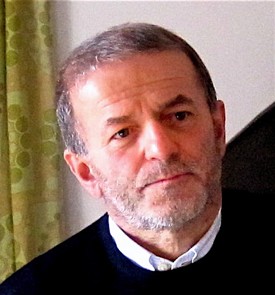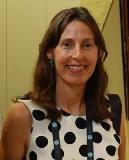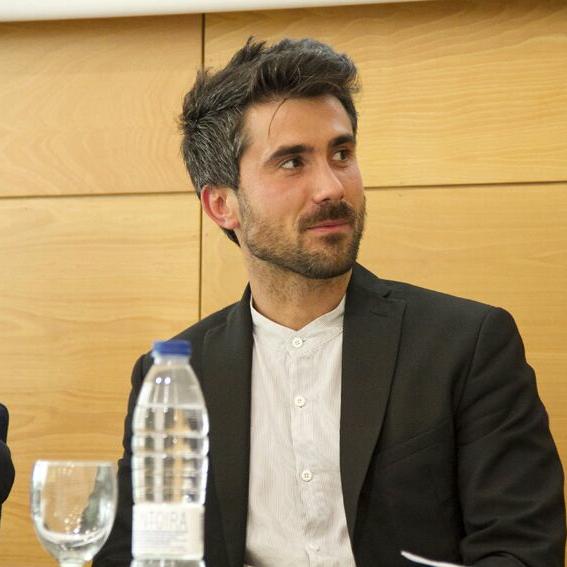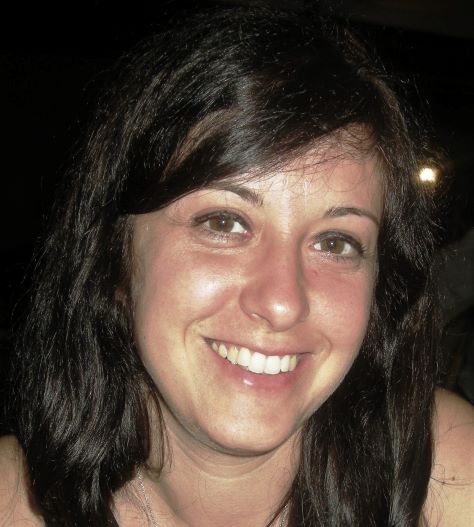Studying at the University of Verona
Here you can find information on the organisational aspects of the Programme, lecture timetables, learning activities and useful contact details for your time at the University, from enrolment to graduation.
Academic calendar
The academic calendar shows the deadlines and scheduled events that are relevant to students, teaching and technical-administrative staff of the University. Public holidays and University closures are also indicated. The academic year normally begins on 1 October each year and ends on 30 September of the following year.
Course calendar
The Academic Calendar sets out the degree programme lecture and exam timetables, as well as the relevant university closure dates..
| Period | From | To |
|---|---|---|
| I semestre | Oct 1, 2019 | Jan 31, 2020 |
| II semestre | Mar 2, 2020 | Jun 12, 2020 |
| Session | From | To |
|---|---|---|
| Sessione invernale d'esame | Feb 3, 2020 | Feb 28, 2020 |
| Sessione estiva d'esame | Jun 15, 2020 | Jul 31, 2020 |
| Sessione autunnale d'esame | Sep 1, 2020 | Sep 30, 2020 |
| Period | From | To |
|---|---|---|
| Festa di Ognissanti | Nov 1, 2019 | Nov 1, 2019 |
| Festa dell'Immacolata | Dec 8, 2019 | Dec 8, 2019 |
| Vacanze di Natale | Dec 23, 2019 | Jan 6, 2020 |
| Vacanze di Pasqua | Apr 10, 2020 | Apr 14, 2020 |
| Festa della Liberazione | Apr 25, 2020 | Apr 25, 2020 |
| Festa del lavoro | May 1, 2020 | May 1, 2020 |
| Festa del Santo Patrono | May 21, 2020 | May 21, 2020 |
| Festa della Repubblica | Jun 2, 2020 | Jun 2, 2020 |
| Vacanze estive | Aug 10, 2020 | Aug 23, 2020 |
Exam calendar
Exam dates and rounds are managed by the relevant Science and Engineering Teaching and Student Services Unit.
To view all the exam sessions available, please use the Exam dashboard on ESSE3.
If you forgot your login details or have problems logging in, please contact the relevant IT HelpDesk, or check the login details recovery web page.
Should you have any doubts or questions, please check the Enrollment FAQs
Academic staff
 maurizio.boscaini@univr.it
maurizio.boscaini@univr.it

Vallini Giovanni
 giovanni.vallini@univr.it
giovanni.vallini@univr.it
 045 802 7098; studio dottorandi: 045 802 7095
045 802 7098; studio dottorandi: 045 802 7095
Study Plan
The Study Plan includes all modules, teaching and learning activities that each student will need to undertake during their time at the University.
Please select your Study Plan based on your enrollment year.
1° Year
| Modules | Credits | TAF | SSD |
|---|
1 module between the following1 module among the following1 module among the following1 module between the following1 module between the following2° Year activated in the A.Y. 2020/2021
| Modules | Credits | TAF | SSD |
|---|
1 module between the following1 module among the following1 module between the following| Modules | Credits | TAF | SSD |
|---|
1 module between the following1 module among the following1 module among the following1 module between the following1 module between the following| Modules | Credits | TAF | SSD |
|---|
1 module between the following1 module among the following1 module between the following| Modules | Credits | TAF | SSD |
|---|
Legend | Type of training activity (TTA)
TAF (Type of Educational Activity) All courses and activities are classified into different types of educational activities, indicated by a letter.
Catalysis and green chemistry (2019/2020)
Teaching code
4S008286
Teacher
Coordinator
Credits
6
Language
Italian
Scientific Disciplinary Sector (SSD)
CHIM/06 - ORGANIC CHEMISTRY
Period
II semestre dal Mar 2, 2020 al Jun 12, 2020.
Learning outcomes
The course aims to provide students with the concepts of chemical catalysis by providing for the use of environmentally friendly methods and alternative synthetic pathways, in the field of Sustainable Chemistry. Approaches based on both the innovation of chemical substances acting as catalysts and the use of unconventional reaction conditions will be illustrated. Emphasis will be placed on possible multidisciplinary approaches and on the most modern technologies that allow sustaining reactions in environmentally sustainable conditions.
Program
1. Course introduction, green chemistry definition, and historical development. The green chemistry approach to reduce chemical risk.
2. Green chemistry: re-imagining chemistry. The challenge of sustainability as a driving force for green chemistry. Toxicity and ecotoxicity; green chemistry and EU's REACH regulation; introduction to toxicology; chemical exposure and dosage.
3. 12 Principles of green chemistry.
4. The periodic table of the elements
5. Chemical reactions and stoichiometry: the importance of balancing chemical equations.
6. The problem of waste and byproduct production by chemical reactions or processes.
7. Green chemistry metrics for reactions and processes: atom economy, E factor,...
8. Catalysis: introduction to catalysis in the context of green chemistry; heterogeneous catalysts; homogeneous catalysis; phase transfer catalysis; biocatalysis, and photocatalysis.
9. Organic solvents and working without solvents.
10. Renewable feedstocks.
11. Green chemistry and energy; green technologies and alternative energy sources.
12. Designing greener processes.
13. Life cycle assessment.
14. Real-World cases in green chemistry and industrial case studies.
| Author | Title | Publishing house | Year | ISBN | Notes |
|---|---|---|---|---|---|
| Roger Arthur Sheldon, Isabel W. C. E. Arends, Ulf Hanefeld | Green Chemistry and Catalysis | Wiley‐VCH Verlag GmbH & Co. KGaA | 2007 | 9783527307159 | |
| Mike Lancaster | Green Chemistry: An Introductory Text (Edizione 3) | Royal Society of Chemistry | 2016 | 978-1-78262-294-9 |
Examination Methods
The course will be concluded with an examination where the student demonstrates proficiency in the subject matter of the course, according to the specified “Learning outcomes”. The written examination consists in multiple-choice and open-ended questions, as well as in calculation exercises. The student may ask the instructor for a complementary oral test after the written test.
Type D and Type F activities
| years | Modules | TAF | Teacher |
|---|---|---|---|
| 1° | Python programming language | D |
Maurizio Boscaini
(Coordinator)
|
Career prospects
Module/Programme news
News for students
There you will find information, resources and services useful during your time at the University (Student’s exam record, your study plan on ESSE3, Distance Learning courses, university email account, office forms, administrative procedures, etc.). You can log into MyUnivr with your GIA login details: only in this way will you be able to receive notification of all the notices from your teachers and your secretariat via email and soon also via the Univr app.
Graduation
Deadlines and administrative fulfilments
For deadlines, administrative fulfilments and notices on graduation sessions, please refer to the Graduation Sessions - Science and Engineering service.
Need to activate a thesis internship
For thesis-related internships, it is not always necessary to activate an internship through the Internship Office. For further information, please consult the dedicated document, which can be found in the 'Documents' section of the Internships and work orientation - Science e Engineering service.
Final examination regulations
List of theses and work experience proposals
| theses proposals | Research area |
|---|---|
| Valutazione dell'applicazione di nanoparticelle biogeniche per il controllo del cancro batterico del kiwi | AGRICULTURE - AGRICULTURE |
| Valutazione dell'applicazione di nanoparticelle biogeniche per il controllo del cancro batterico del kiwi | APPLICATIONS OF LIFE SCIENCES - APPLICATIONS OF LIFE SCIENCES |
| Valorizzazione di scarti agroindustriali mediante fermentazione termofila per la produzione di acidi organici come precursori chimici di polimeri | Applied biotechnology (non-medical), bioreactors, applied microbiology - Applied biotechnology (non-medical), bioreactors, applied microbiology |
| Valutazione dell'applicazione di nanoparticelle biogeniche per il controllo del cancro batterico del kiwi | Applied biotechnology (non-medical), bioreactors, applied microbiology - Applied biotechnology (non-medical), bioreactors, applied microbiology |
| Immobilizzazione di enzimi d’interesse industriale su nanoparticelle biomimetiche magnetiche | Applied Life Sciences and Non-Medical Biotechnology: Applied plant and animal sciences; food sciences; forestry; industrial, environmental and non-medical biotechnologies, nanobiotechnology, bioengineering; synthetic and chemical biology; biomimetics; bioremediation - Biomimetics |
| Immobilizzazione di enzimi d’interesse industriale su nanoparticelle biomimetiche magnetiche | Applied Life Sciences and Non-Medical Biotechnology: Applied plant and animal sciences; food sciences; forestry; industrial, environmental and non-medical biotechnologies, nanobiotechnology, bioengineering; synthetic and chemical biology; biomimetics; bioremediation - Non-medical biotechnology and genetic engineering (including transgenic organisms, recombinant proteins, biosensors, bioreactors, microbiology) |
| Immobilizzazione di enzimi d’interesse industriale su nanoparticelle biomimetiche magnetiche | Chemical engineering, technical chemistry - Chemical engineering, technical chemistry |
| Effetto delle condizioni operative applicate al processo di digestione anaerobica su produzione di biogas e stabilità del carbonio organico del digestato | Earth System Science: Physical geography, geology, geophysics, atmospheric sciences, oceanography, climatology, cryology, ecology, global environmental change, biogeochemical cycles, natural resources management - Biogeochemistry, biogeochemical cycles, environmental chemistry |
| Influenza dalla variazione stagionale del feedstock sulla produzione di biogas e sulla stabilità del carbonio organico presente nel digestato prodotto | Earth System Science: Physical geography, geology, geophysics, atmospheric sciences, oceanography, climatology, cryology, ecology, global environmental change, biogeochemical cycles, natural resources management - Biogeochemistry, biogeochemical cycles, environmental chemistry |
| Studio dei pool di sostanza organica del suolo in permafrost antartici | Earth System Science: Physical geography, geology, geophysics, atmospheric sciences, oceanography, climatology, cryology, ecology, global environmental change, biogeochemical cycles, natural resources management - Biogeochemistry, biogeochemical cycles, environmental chemistry |
| Valorizzazione di scarti agroindustriali mediante fermentazione termofila per la produzione di acidi organici come precursori chimici di polimeri | Environmental biotechnology, bioremediation, biodegradation - Environmental biotechnology, bioremediation, biodegradation |
| Bilanci di massa e di materia in digestori anaerobici alimentati con residui agricoli e zootecnici. | Products and Processes Engineering: Product design, process design and control, construction methods, civil engineering, energy processes, material engineering - Chemical engineering, technical chemistry |
| Studio della composizione chimica e della stabilità termica di poliidrossialcanoati ottenuti da diverse matrici ambientali. | Products and Processes Engineering: Product design, process design and control, construction methods, civil engineering, energy processes, material engineering - Chemical engineering, technical chemistry |
| Valorizzazione di scarti agroindustriali mediante fermentazione termofila per la produzione di acidi organici come precursori chimici di polimeri | Products and Processes Engineering: Product design, process design and control, construction methods, civil engineering, energy processes, material engineering - Chemical engineering, technical chemistry |
| Immobilizzazione di enzimi d’interesse industriale su nanoparticelle biomimetiche magnetiche | Products and Processes Engineering: Product design, process design and control, construction methods, civil engineering, energy processes, material engineering - Materials engineering (metals, ceramics, polymers, composites, etc.) |
| Valorizzazione di scarti agroindustriali mediante fermentazione termofila per la produzione di acidi organici come precursori chimici di polimeri | Products and Processes Engineering: Product design, process design and control, construction methods, civil engineering, energy processes, material engineering - Production technology, process engineering |
| Studio delle proprietà di luminescenza di lantanidi in matrici proteiche | Synthetic Chemistry and Materials: Materials synthesis, structure-properties relations, functional and advanced materials, molecular architecture, organic chemistry - Colloid chemistry |
| Multifunctional organic-inorganic hybrid nanomaterials for applications in Biotechnology and Green Chemistry | Synthetic Chemistry and Materials: Materials synthesis, structure-properties relations, functional and advanced materials, molecular architecture, organic chemistry - New materials: oxides, alloys, composite, organic-inorganic hybrid, nanoparticles |
Attendance
As stated in the Teaching Regulations for the A.Y. 2022/2023, attendance is not mandatory. However, professors may require students to attend lectures for a minimum of hours in order to be able to take the module exam, in which case the methods that will be used to check attendance will be explained at the beginning of the module.














